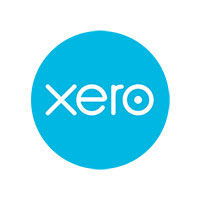
Someone told me a joke the other day…
Q: How do you make sure you only employ lucky people?
A: Throw away half the CVs you receive without even looking at them!
As well as making me smile, it did get me thinking about candidate short listing, and I thought I would share some hints and tips with you to help save you time and money when recruiting.
1. Essential or desirable?
Hopefully, you will be starting your candidate short listing process with a list of essential and desirable experience, skills and attributes that you drew up before you advertised the role. If not, then you might find it helpful to get some assistance with putting together a job description and person specification. As well as supporting the short-listing process, these two documents will help you avoid any potential discrimination in your job adverts.
2. Use simple scores
I recommend that you use a simple scoring system to evaluate each CV objectively against your criteria. This could consist of a 0-3 scoring system, with candidates scoring zero if there is no evidence of the criterion in their CV, up to a score of 3 if there is strong evidence. (A score of 1 would denote some evidence but weak, a score of 2 would denote clear evidence.) Before you start the scoring it’s important to have clarity in your own mind, about what you’re looking for at each level of scoring.
3. Consider your shortlisting deal breakers
Before reviewing CVs against your short list criteria, decide if there are any ‘deal breakers’. If you have a specific requirement that is non-negotiable, such as an accountancy qualification if the role is for a qualified accountant, then check the qualifications sections of the CVs first and weed out any without it. There’s no point scoring the CV on any of the other elements if this is an essential requirement.
4. Set your CV shortlisting benchmark
You will also need to decide on a benchmark score – candidates who score the benchmark or above will be the ones whom you invite for interview. You can do this before or after you score the CVs, although you are likely to be more objective if it you do it beforehand.
The level at which you set your benchmark may be dependent on several factors – strength of the job market, the number of CVs you receive, whether you want the ‘finished article’ or are prepared to offer coaching and training to a candidate who has some but not all of the right skills and experience.
A suggested benchmark if you have six criteria against which you are scoring would be a score of 11. This would mean that candidates who are short listed to the interview stage have provided strong or clear evidence in their CV of the skills and attributes you are seeking, with room to drop a couple of points where perhaps the evidence is slightly weak, or it’s unclear from simply reading their CV.
5. Review your benchmark when you’ve finished
Once you’ve scored all your CVs, review your benchmark. If you find that you have a large number of candidates that meet this benchmark then you could consider raising it, so that you short-list only those that score 12 or above for example. If you have very few CVs meeting your benchmark then you could consider lowering it slightly, in order to see a wider pool of candidates at interview. You should be fairly cautious when doing this however, as you could end up wasting valuable time interviewing candidates who are not suitable for the role.




